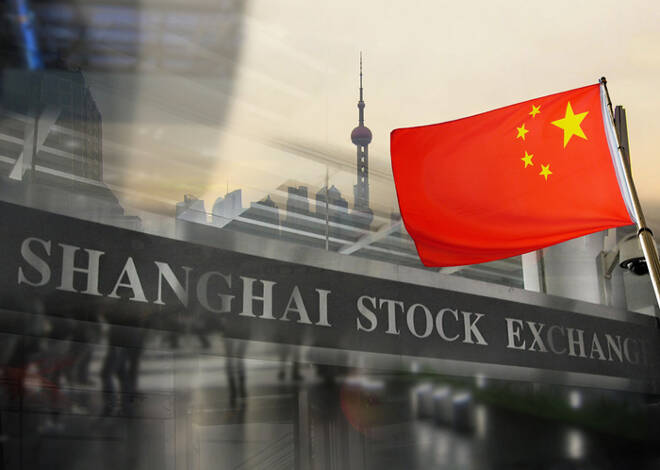Advertisement
Advertisement
Asia-Pacific Shares Mostly Lower as US Plans to Blacklist More China Firms According to Reuters Report
By:
In a surprise move, the Bank of Japan said it will look at ways to make its policy “more effective and sustainable.”
The major Asia-Pacific stock indexes were mostly lower on Friday with South Korea’s KOSPI Index bucking the trend. The selling was fueled after Reuters reported that the United States is set to add dozens of Chinese companies, including the country’s top chipmaker SMIC, to a trade blacklist later in the day. Developments from the Bank of Japan also rattled traders.
In the cash market on Friday, Japan’s Nikkei settled at 26763.39, down 43.28 or -0.16%. Hong Kong’s Hang Seng Index finished at 26498.60, down 179.78 or -0.67% and South Korea’s KOSPI Index closed at 2772.18, up 1.75 or +0.06%.
China’s Shanghai Index settled at 3394.90, down 9.98 or -0.29% and Australia’s S&P/ASX 200 finished at 6675.50, down 81.20 or -1.20%.
Reuters: US to Blacklist Dozens of Chinese Firms Including SMIC, Sources Say
The United States is set to add dozens of Chinese companies, including the country’s top chipmaker SMIC, to a trade blacklist on Friday, two people familiar with the matter told Reuters on Thursday.
The Commerce Department is expected to add around 80 additional companies and affiliates to the so-called entity list, nearly all of them Chinese.
China’s foreign ministry said that if true, the blacklisting would be evidence of U.S. oppression of Chinese companies and that Beijing would continue to take “necessary measures” to protect their rights.
Bank of Japan Unveils New Plan
The Bank of Japan on Friday unveiled a plan to examine more effective ways to achieve its 2% inflation target, following in the footsteps of its U.S. and European peers as a renewed spike in infections threaten to derail a fragile recovery.
As widely expected, the central bank kept monetary policy steady and extended by six months a range of measures aimed at easing funding strains of companies hit by COVID-19.
In a surprise move, the BOJ said it will look at ways to make its policy “more effective and sustainable,” as the blow to growth from the pandemic pushes inflation further away from its target and forces it to maintain its massive stimulus longer.
South Korea Shares End Flat as Virus Concerns Offset US Stimulus Hopes
South Korean shares ended higher on Friday despite concerns over surging coronavirus infections at home overshadowing growing optimism about another U.S. economic aid package.
South Korea reported 1,062 new coronavirus cases on Friday, its second-highest ever daily tally, as the government warned businesses it was unacceptable for them to try to dodge shut-down orders by tricking the system.
That news countered the boost to sentiment from news that U.S. Republicans and Democrats were scrambling to pass a new round of aid after months of partisan finger-pointing and inaction.
For a look at all of today’s economic events, check out our economic calendar.
About the Author
James Hyerczykauthor
James Hyerczyk is a U.S. based seasoned technical analyst and educator with over 40 years of experience in market analysis and trading, specializing in chart patterns and price movement. He is the author of two books on technical analysis and has a background in both futures and stock markets.
Advertisement
